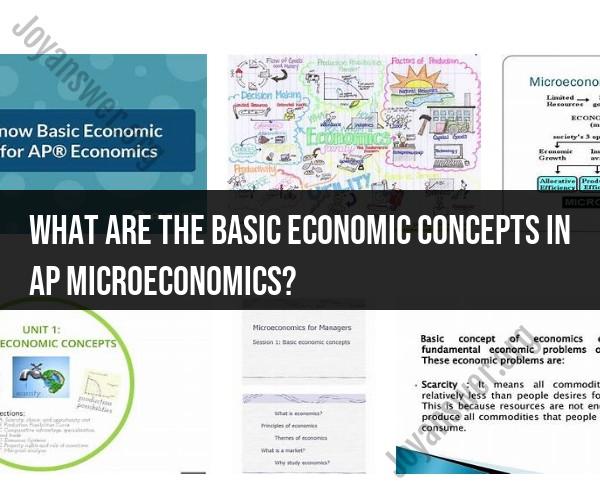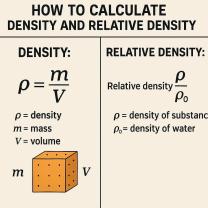What are the basic economic concepts in AP Microeconomics?
AP Microeconomics is an advanced placement course in economics that covers various fundamental economic concepts. These concepts are essential for understanding how individuals and firms make decisions in the context of resource allocation and market interactions. Here are some of the basic economic concepts you'll encounter in AP Microeconomics:
Scarcity: Resources are limited, while human wants and needs are unlimited. Scarcity forces individuals and societies to make choices about how to allocate these limited resources efficiently.
Opportunity Cost: This concept represents the value of the next best alternative that is foregone when a choice is made. In other words, it's what you give up to get something else.
Supply and Demand: Supply refers to the quantity of a good or service that producers are willing and able to provide at different prices, while demand represents the quantity that consumers are willing and able to buy at different prices. The interaction between supply and demand determines market equilibrium.
Elasticity: Elasticity measures the responsiveness of the quantity demanded or supplied to changes in price or income. Price elasticity of demand and price elasticity of supply are key concepts.
Utility: Utility is a measure of satisfaction or happiness that individuals derive from consuming goods and services. It's a central concept in understanding consumer behavior.
Costs of Production: Firms incur various costs when producing goods and services, including fixed costs, variable costs, and marginal costs. These costs are essential for determining profit-maximizing output levels.
Market Structures: AP Microeconomics typically covers different market structures, such as perfect competition, monopolistic competition, oligopoly, and monopoly. Each structure has unique characteristics that affect pricing and output decisions.
Consumer Choice: This concept explores how consumers make rational choices to maximize utility based on their preferences and budget constraints. It often includes the analysis of indifference curves and budget lines.
Firm Behavior: Firms aim to maximize profit, which involves making decisions about how much to produce, what price to charge, and how many resources to allocate to production.
Factor Markets: Factor markets deal with the exchange of productive resources such as labor, land, and capital. Concepts like wages, rent, and interest rates are explored in this context.
Income Distribution: The course may also touch on issues related to income inequality and the distribution of wealth, including factors that influence these distributions.
Government Intervention: You'll study how government policies, such as taxes, subsidies, price controls, and regulations, can impact market outcomes and resource allocation.
These are some of the core economic concepts covered in AP Microeconomics. The course helps students develop analytical skills and a deep understanding of how economic agents, both individuals and firms, make decisions in various economic environments. AP Microeconomics is an excellent foundation for further studies in economics and related fields.













